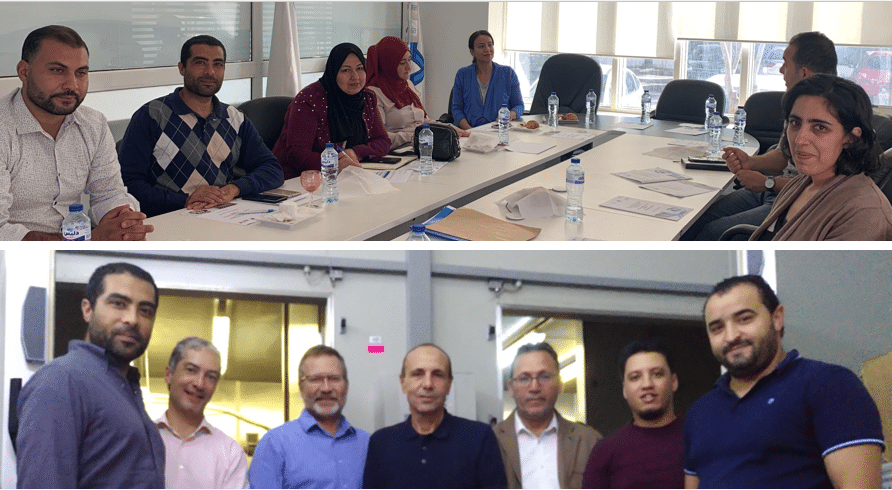In November 2023, UNEP U4E convened two training workshops to build capacity amongst key stakeholders in Tunisia for monitoring, verification and enforcement (MVE) activities to support the country’s forthcoming adoption of mandatory Minimum Energy Performance Standards (MEPS) for lighting products.
Adoption of MEPS in line with the recommendations of the UNEP U4E model regulation guidelines for lighting project and the sustainable transition to energy-efficient lighting technologies has the potential to result in annual savings in 2030 of around 280 GWh, saving consumers $21.5 million on their electricity bills, with a 0.19 million tonne reduction in CO2 emissions, equivalent to taking 110 thousand passenger cars off the road.
However, without effective MVE, there is a risk that the full potential of these savings won’t be achieved given the lack of mechanisms, instruments and norms that oversees the market and make sure MEPS regulation are complied. Thus, a key objective of the Global Environment Facility (GEF)-funded Leapfrogging Tunisia’s lighting market to high efficiency technologies project, is to strengthen the MVE regulatory and institutional framework. These workshops were designed to support this objective.
The first workshop, on 14-15 November 2023, was hosted at the National Agency for Energy Management (ANME). It focussed on raising awareness of the importance of establishing an effective MVE framework, the elements that could be considered for inclusion to improve the current Tunisian MVE system, and on strengthening the capacities of the main stakeholders associated with the introduction of MEPS and labelling for lighting products.
- Technical Center for Mechanical and Electrical Industries (CETIME)
- Directorate General of Manufacturing Industries (DGIM)
- National Institute of Standardization and Industrial Property (INNORPI)
- General Directorate of Customs
- National Agency for Energy Management (ANME)
- Department of Quality and Consumer Protection (DQPC)
Representatives from the National Federation of Electricity and Electronics (FEDELEC), the Tunisian Consumer Defence Organization (ODC) and manufacturers and importers also attended as key non-governmental stakeholders.
Over the course of the two days, participants received an introduction to MVE frameworks, their main features, the roles and responsibilities of the organizations involved and international best practices in MVE. This was placed in the national context with a review of the current regulatory and institutional framework relating to the control and surveillance of the lighting products market in Tunisia and recommendations for the Tunisian MVE system.
It was clear from the discussions with the participants that there is a common will towards accelerating the adoption of draft energy labelling regulatory texts and MEPS for lighting products in order to clean up the market and avoid it being flooded with poor quality and/or non-compliant lighting products. However, it was recognised that it is important to inform key partners and economic operators of the requirements and obligations in good time to enable them to take the necessary steps to comply.
It was also recognised that to ensure compliance of lighting products with the regulatory requirements, it is imperative to strengthen market surveillance not only prior to market entry, but also at the points of sale, such as hardware stores, supermarkets and online sales. A dedicated Industrial Products Control and Market Surveillance Agency is being set up which will carry out market control and surveillance activities and training will be provided to strengthen their technical skills on lighting products.
Discussion also took place on the mechanism to coordinate and exchange information between the different institutional actors (commerce, customs, CETIME, ANME, DGIM) and private operators through an online MVE system, which is currently being developed by ANME.
The need to increase awareness-raising actions for the benefit of consumers in purchasing high-performance, quality lighting products was also discussed. ANME and ODC will have an important role to play in this by carrying out concerted and targeted actions focused on the consumer.
This training workshop took place at the CETIME national test laboratory facilities in Tunis on 15-17 November 2023. It focused on increasing testing capability in lighting product performance by providing information on the fundamentals of lighting, relevant performance metrics and practical operational processes for the CETIME and ANME staff who will be involved in the compliance testing for the MVE system for lighting products.
The technical training was provided by UNEP U4E lighting expert, Steve Coyne, and covered photometry aspects, revision of MEPS parameters, the test methods against which lighting products will be assessed for compliance and laboratory accreditation, which equipped participants with the knowledge and skills to competently conduct the key tests assessing lighting product compliance and to be capable of assessing the laboratory test results from check testing activities.
To learn more about the workshops and the project in Tunisia, contact U4E’s Soledad Garcia at soledad.garcia@un.org.
